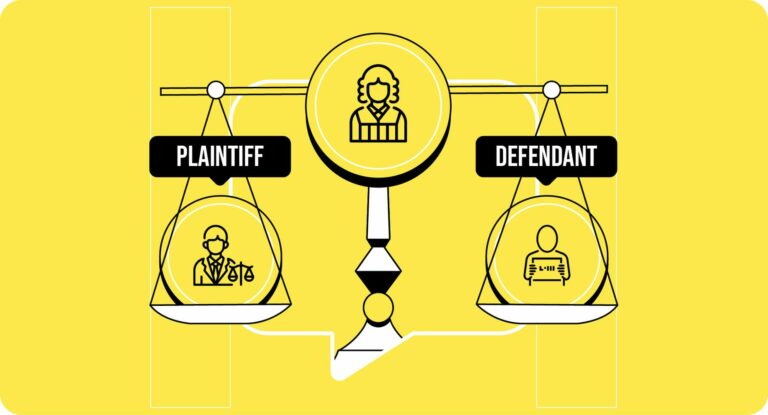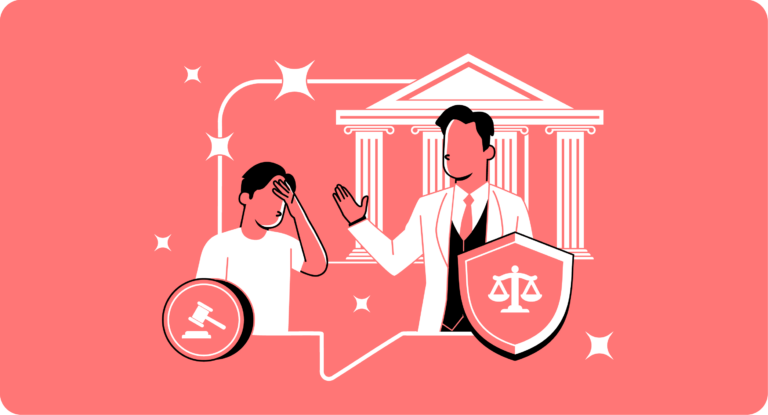Car accidents can be jarring experiences, not just emotionally, but physically as well. When the dust settles and the immediate shock subsides, victims often notice a range of symptoms. Some are overt and demand immediate attention – like broken bones or bleeding. Others, like a persistent sore throat, can be more subtle but are no less disconcerting.
This article delves into the topic of a sore throat following a car accident – exploring its causes, significance, and the steps one should take in response. The aim is to provide readers with a comprehensive understanding of this particular symptom and emphasize the importance of not overlooking it amidst the chaos post-accident.
Understanding the Trauma of a Car Accident
Car accidents, whether minor or severe, subject the body to significant physical and emotional stresses. Physically, even a minor collision can jolt the body in unnatural ways, potentially leading to strains and injuries. Emotionally, the suddenness of an accident can trigger immediate reactions like screaming or holding one’s breath, which can later manifest as a sore throat.
Moreover, the body’s adrenaline rush often masks initial discomfort, making symptoms more noticeable once the initial shock wanes. Recognizing the trauma associated with car accidents is vital, as it helps us understand the emergence of symptoms like a sore throat in the aftermath.
Reasons for a Sore Throat After a Car Accident
A sore throat after a car accident can arise from several factors, each tracing back to the unexpected and intense nature of the event:
- Whiplash and Neck Strain: One of the most common injuries in rear-end collisions is whiplash. The sudden force causes the head to jerk forward and backward, stretching the neck muscles and ligaments. This strain can extend to the throat area, causing soreness.
- Seat Belt Injuries: Seatbelts play a critical role in saving lives during accidents. However, the force exerted by a seatbelt can sometimes lead to abrasions or bruises around the neck and chest area, contributing to a sore throat.
- Emotional Response: The sheer shock and fear during an accident might lead individuals to scream or shout. This sudden and forceful use of the vocal cords can result in throat soreness.
- Other Contributing Factors: In some cases, individuals might inadvertently breathe in dust, smoke, or debris from the accident scene, irritating the throat.
It’s crucial for accident victims to understand these potential causes, ensuring they take their symptoms seriously and seek appropriate care.
Potential Long-Term Implications of a Sore Throat Post-Accident
While a sore throat might seem like a minor inconvenience in the wake of a car accident, it’s essential to understand the broader implications it might suggest. A persistent sore throat or one that intensifies over time can hint at more severe underlying problems.
For starters, a sore throat that lingers might be a sign of chronic whiplash, where the symptoms persist for months or even years after the accident. Chronic whiplash can lead to a range of issues, from constant pain and stiffness to fatigue and even cognitive problems like memory and concentration issues.
Moreover, if a sore throat arises due to respiratory issues – perhaps from inhaling smoke, dust, or other irritants during the accident – it might be an early warning sign of long-term respiratory complications. Conditions like asthma or chronic bronchitis can develop or worsen due to such triggers.
Lastly, a sore throat, in combination with other symptoms, might indicate the presence of post-traumatic stress disorder (PTSD). The accident’s trauma can manifest physically in various ways, including a sore or tight throat, especially during anxiety episodes or flashbacks.
Being vigilant and seeking early medical intervention can prevent these potential long-term implications. It ensures that victims receive adequate treatment and, if necessary, compensation for any prolonged medical care or therapies.
Significance of Identifying and Treating the Symptoms
Ignoring any post-accident symptom, no matter how seemingly minor, can have long-term repercussions. For instance, a sore throat, while possibly appearing benign, can be indicative of deeper underlying issues.
A sore throat could be a sign of more severe neck injuries or internal trauma, especially if accompanied by other symptoms such as difficulty swallowing or persistent pain. Addressing and treating symptoms early can prevent them from becoming chronic issues in the future. Bear in mind that, sometimes, what begins as a physical ailment can take a toll on one’s emotional and mental well-being, especially if left untreated. Addressing it promptly ensures holistic recovery.
Key steps to take when experiencing a sore throat after an accident
- Seek Medical Attention: Always consult a healthcare professional. They can provide a thorough examination and ensure there’s no internal injury.
- Document Symptoms: Maintain a record of when the sore throat started, its intensity, and any other associated symptoms. This can be crucial for medical and legal reasons.
- Avoid Self-Diagnosis: The internet is flooded with information, but not everything applies universally. Trust professionals over web searches.
Understanding the significance of identifying and addressing a sore throat post-accident is paramount. Early action can ensure quicker recovery and prevent potential complications.
Tips for Recovery
Recovering from a car accident involves not only addressing visible wounds but also tending to subtler symptoms like a sore throat. Here are some recommendations to aid in your recovery:
- Rest and Allow the Body to Heal: The body has a remarkable ability to repair itself, but adequate rest is a prerequisite. Ensure you’re getting enough sleep and avoiding straining your throat.
- Over-the-Counter Treatments: For mild sore throat symptoms, over-the-counter pain relievers or throat lozenges can provide relief. However, always consult with a healthcare professional before starting any medication.
- Therapies and Exercises: Physiotherapy or specific neck exercises can help alleviate pain resulting from whiplash or neck strains. A physical therapist can provide guidance tailored to your injury.
- Stay Hydrated: Drinking water can soothe an irritated throat and accelerate healing. Avoid irritants like smoking or consuming overly spicy foods during the recovery phase.
- Regular Medical Follow-ups: Even after the initial treatment, it’s crucial to maintain regular check-ins with your healthcare provider to monitor your progress and ensure no latent issues arise.
A proactive approach to recovery, combined with professional medical advice, can hasten healing and ensure you return to your daily routine in optimal health.
When to Seek Legal Help
Navigating the aftermath of a car accident is not just about physical recovery. Often, the legal implications and potential compensation claims can be just as daunting. It’s essential to understand when legal intervention is necessary and beneficial.
The role of legal professionals in post-accident scenarios is multifaceted. They can guide victims through the complexities of insurance claims, help in seeking compensation for medical bills, and ensure that their rights are protected. Particularly when symptoms like a sore throat appear, which might seem minor but can indicate more significant underlying issues, having legal counsel ensures that victims are adequately compensated for all aspects of their injuries.
Victims need support on multiple fronts — medical experts to address health concerns and legal professionals to navigate the complexities of compensation and rights. For those finding themselves in such challenging situations, the Crockett Law Group stands ready to assist. With a blend of skills and compassion, they work tirelessly to ensure victims’ rights are upheld.
If you or a loved one is experiencing complications after a car accident, do not hesitate to reach out to the Crockett Law Group at (800) 900-9393.
Remember, taking prompt action, both medically and legally, is paramount to ensure the best outcomes after such traumatic events.










